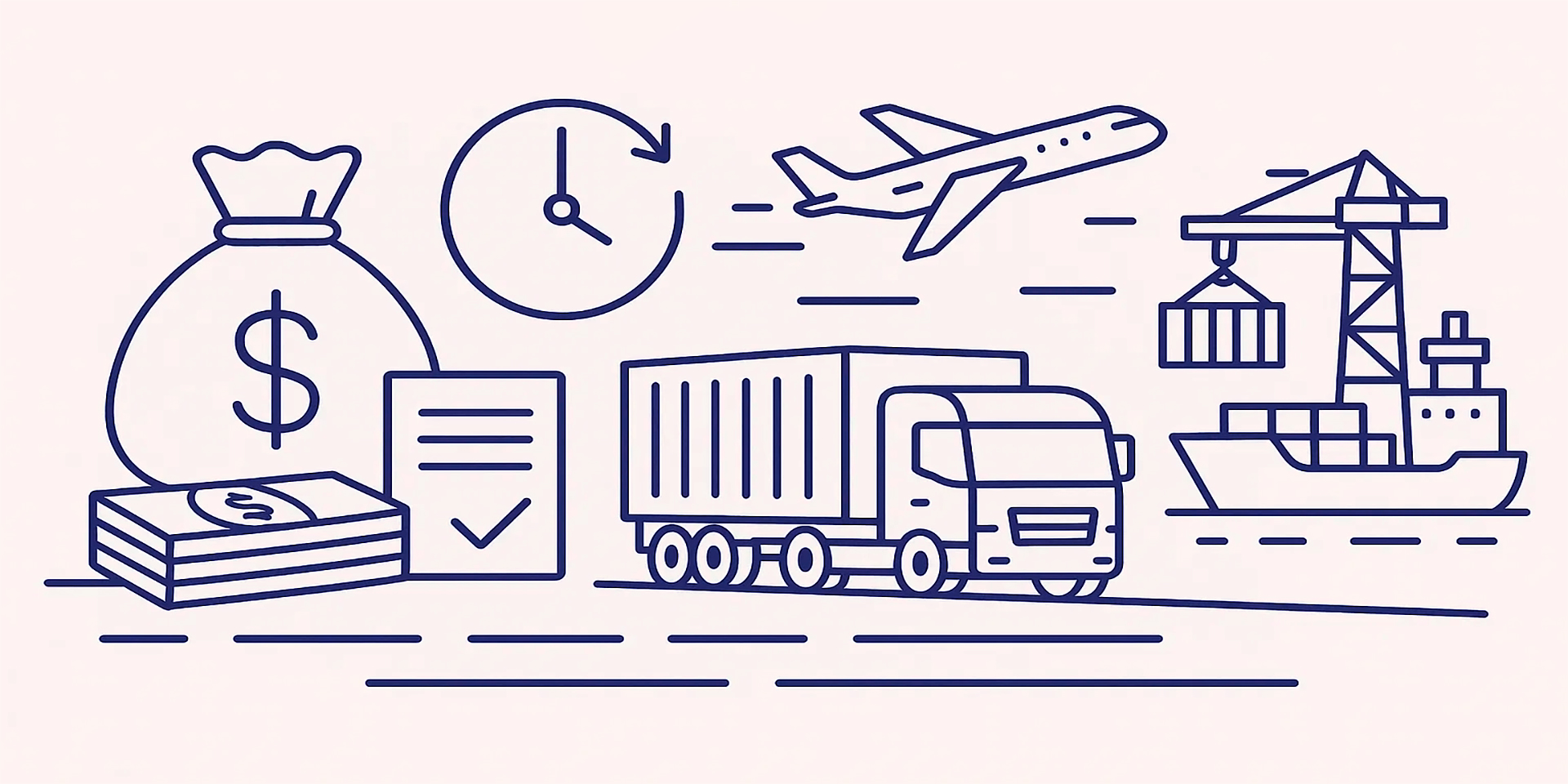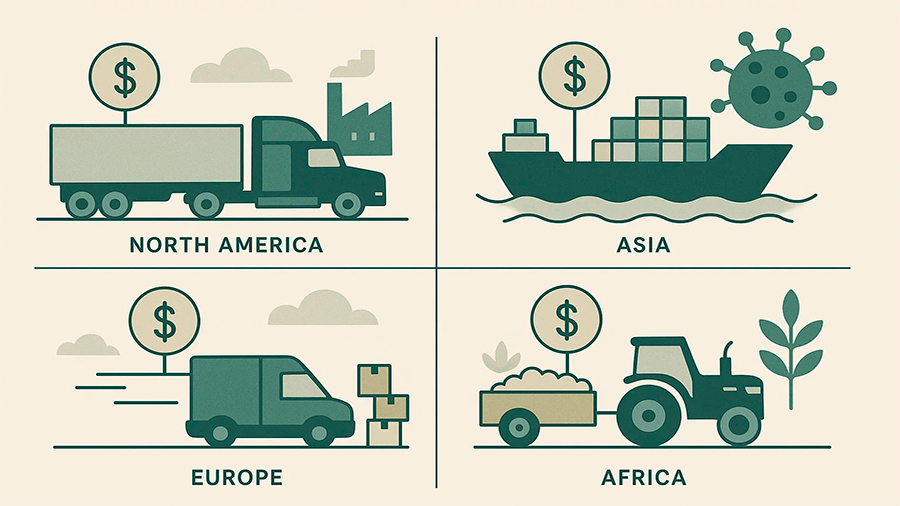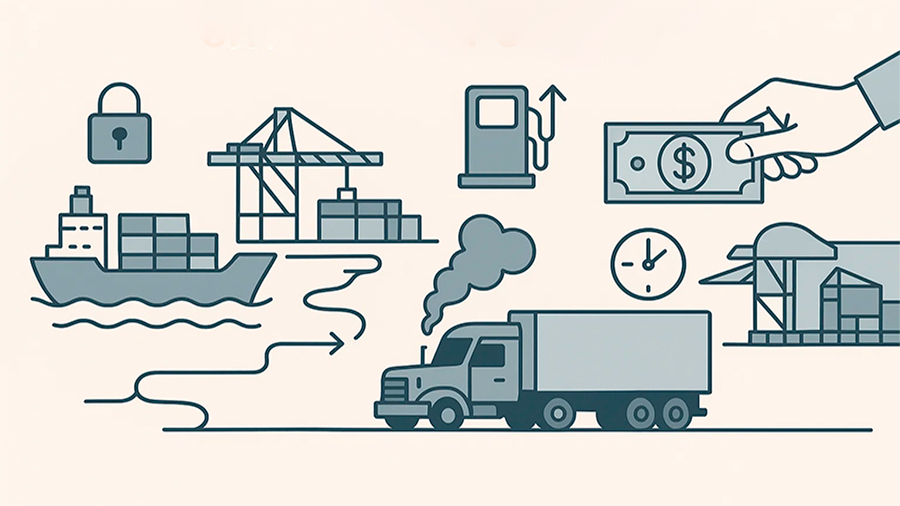Keeping Supply Chains Running Through Quick Financing
The Role of Short-Term Loans in Maintaining Logistics Contracts
Logistics is built on precision. Clients expect goods to arrive on time, no matter the season or disruption. But behind the scenes, logistics companies constantly wrestle with unpredictable costs—fuel hikes, port blockages, labor shortages, equipment breakdowns, and demand surges. Because margins in this sector are thin, cash flow disruptions quickly escalate into risks of missed deadlines and penalties. Short-term loans act as a financial lifeline in these moments. They give companies fast access to working capital, ensuring deliveries are completed, contracts are honored, and reputations remain intact. In an industry where a single failed shipment can mean the loss of a major customer, quick credit is often the difference between survival and failure.
Why Short-Term Loans Matter in Logistics
For logistics firms, stability in service delivery is non-negotiable. Delays can trigger contractual fines, strained client relations, and damage that takes years to repair. Yet the sector operates with high fixed costs—fuel, vehicle maintenance, staff salaries, and port fees—all of which fluctuate without warning. Seasonal peaks add extra strain, as do sudden global events like strikes, extreme weather, or political unrest. In these conditions, short-term loans provide breathing room. They give operators the liquidity to absorb shocks without halting operations. For lenders, repayment reliability is high because loans are tied directly to invoices and delivery payments. For operators, short-term credit preserves both cash flow and client trust, offering a bridge between immediate costs and later revenue collection.
Seasonal Peaks and Temporary Financing Needs
Few industries face seasonal swings as sharp as logistics. During holidays, shopping festivals, or harvest seasons, transport volumes can double overnight. Meeting this surge requires extra trucks, drivers, fuel, and storage—all of which demand upfront payment before clients settle invoices. Short-term loans fill this funding gap, allowing firms to scale quickly without breaking cash reserves. For instance, a courier service in Europe may borrow to lease vans and hire temporary drivers during December. An agricultural exporter in Latin America might take credit to expand cold storage during harvest months, ensuring perishable goods reach ports before spoilage. Once invoices are paid, the loans are repaid, keeping operations smooth through seasonal cycles.
Examples of Seasonal Loan Use
| Peak Period | Loan Application | Example |
|---|---|---|
| Holiday retail season | Expand fleet and hire drivers | Courier firms borrowing for December deliveries |
| Harvest season | Finance cold storage and transport | Fruit exporters funding extra refrigerated trucks |
| E-commerce sales events | Overtime pay and warehouse staff | Logistics providers during Black Friday |
| Tourism season | Increase shuttle and transport services | Bus operators financing temporary fleet expansion |
Handling Disruptions With Short-Term Credit
Disruptions are unavoidable in logistics. A port closure can divert ships thousands of miles. Fuel price spikes can erase margins in weeks. A broken-down truck on a major delivery route can delay shipments and trigger penalties. Without fast financing, these disruptions create cascading failures across entire supply chains. Short-term loans offer immediate relief. A trucking company in the U.S. might borrow overnight to repair critical vehicles and avoid missing delivery deadlines. A freight operator in Asia may secure emergency credit to reroute goods through an alternative port after congestion paralyzes the main hub. Even a small loan can be decisive, preventing one problem from snowballing into contractual default and reputational loss.
Disruption Scenarios Covered by Loans
| Disruption | Loan Role | Real-World Example |
|---|---|---|
| Fuel price surge | Cover sudden increase in operating expenses | European haulers borrowing after diesel spikes in 2022 |
| Port congestion | Finance alternative shipping routes | Asian carriers rerouting during Shanghai lockdowns |
| Vehicle breakdown | Pay for emergency repairs | North American trucking firms repairing fleets overnight |
| Customs delays | Cover storage fees and fines | Latin American exporters financing warehouse penalties |
Safeguarding Contracts and Reputation
Every logistics contract comes with strict delivery clauses. Missing deadlines triggers fines and, more damagingly, erodes client trust. The reputational cost of failing to deliver on time often exceeds the direct financial penalty. Short-term loans act as insurance against these failures. A shipping company faced with unexpected customs duties can borrow quickly, pay fees, and release cargo. A last-mile delivery service in an urban area can secure emergency credit to hire temporary couriers during traffic disruptions. These measures ensure commitments are met. Clients rarely notice the financial maneuvering behind the scenes—they simply see reliability. By aligning loan use with contract protection, logistics companies safeguard both revenue streams and long-term relationships.
Industries Most Dependent on Loan-Backed Logistics
Different industries place different levels of stress on logistics contracts, and those under higher pressure rely most heavily on short-term financing. Retailers tied to shopping peaks need guaranteed delivery during key sales windows. Agricultural exporters must move crops quickly to avoid spoilage. E-commerce platforms demand flexible, scalable last-mile services that can expand or contract overnight. Pharmaceuticals face high stakes: a missed shipment can compromise critical healthcare delivery. Short-term loans allow logistics providers to adapt instantly, ensuring contractual performance even in high-pressure sectors.
Industry-Specific Applications
| Industry | Loan Purpose | Case Example |
|---|---|---|
| Retail | Fund extra fleet and temporary staff | Retail logistics hubs during holiday surges |
| Agriculture | Finance cold chain capacity | Latin American fruit exporters during mango harvest |
| E-commerce | Scale warehouse and last-mile services | South Asian logistics firms handling flash sales |
| Pharmaceuticals | Cover expedited shipments | European suppliers financing urgent vaccine deliveries |
| Automotive | Ensure timely delivery of components | OEM suppliers financing freight during chip shortages |
Global Examples of Loan Use in Logistics
Across the globe, logistics firms use short-term credit as a stabilizer. In North America, trucking firms facing diesel cost surges after geopolitical conflicts borrowed to keep fleets running. In Asia, shipping companies relied on bridge loans to reroute goods during COVID-related port lockdowns. European logistics operators took seasonal loans to manage the flood of e-commerce deliveries in 2021, when demand for home delivery doubled. In Africa, agricultural exporters borrow regularly to move crops during short harvest windows, ensuring perishable goods reach buyers on time. These examples highlight a universal truth: logistics may differ by region, but financing remains a critical safety net everywhere.
How Lenders Support Contract Reliability
Lenders play a direct role in keeping supply chains intact. By offering flexible credit facilities, they enable logistics firms to respond to disruptions without delay. Products such as invoice financing, trade credit, and revolving credit lines are particularly suited to logistics, where expenses spike suddenly but repayments are predictable once invoices clear. Some banks now offer tailored credit products for logistics firms, linking loan repayment schedules directly to freight cycles. Others provide risk-sharing agreements, lowering exposure for operators facing unpredictable costs. Lenders who understand the sector’s volatility become partners in reliability, helping firms maintain contractual performance even in volatile environments.
The Conclusion
Short-term loans have become indispensable in logistics. They bridge the financial gap between rising costs and delayed revenues, helping firms cope with seasonal peaks, disruptions, and strict delivery contracts. From covering emergency repairs to financing cold storage during harvest, these loans ensure companies meet obligations and avoid penalties. Industries as diverse as retail, agriculture, e-commerce, and pharmaceuticals depend on this credit safety net to keep goods moving. For logistics firms, short-term borrowing is not just about managing money—it is about preserving reputation, honoring contracts, and keeping supply chains alive. In a business where trust is everything, access to quick financing makes the difference between continuity and collapse.



